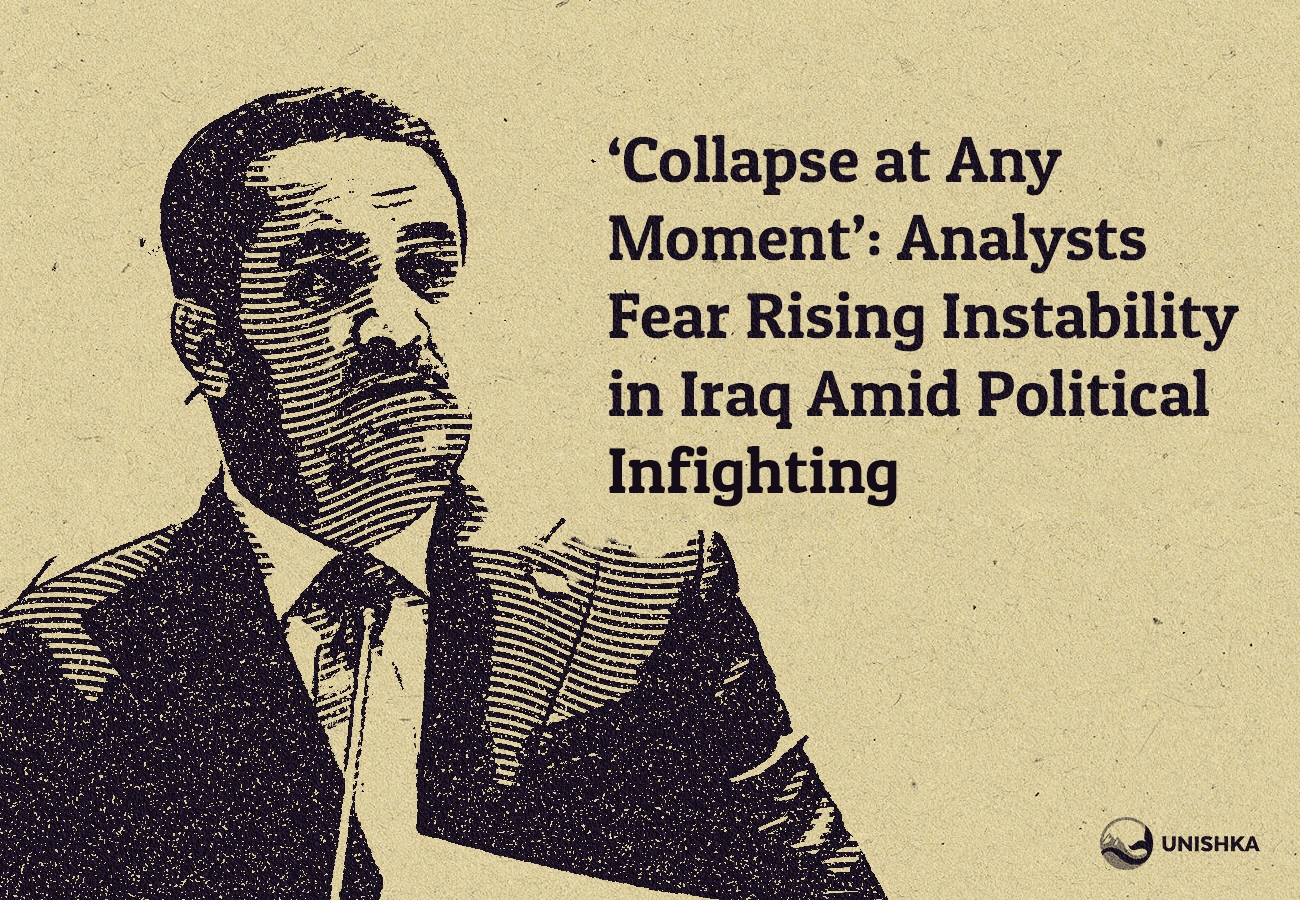
‘Collapse at Any Moment’: Analysts Fear Rising Instability in Iraq Amid Political Infighting
20 July 2023 ( The Media Line )
Experts predict that the Iraqi political system will collapse in response to Sunni-Shiite disputes, internal political crises, corruption, and economic struggles
Disputes have broken out in Iraq between various Sunni and Shiite political parties regarding the implementation of the political agreement that led to the formation of Prime Minister Mohammed Shia’ Al Sudani’s government.
Prime Minister Al Sudani was elected as a representative of the Coordination Framework, an Iran-backed bloc of Shiite parties. An intense rivalry for control of the state has developed between him and Speaker of Parliament Mohamed Al-Halbousi, Iraq’s most prominent Sunni leader.
Following the Iraqi elections in October 2021, Sunni and Shiite parties agreed to work together on issues including the state budget and reforms around general amnesty, accountability, and justice. They also agreed to preserve a balance in government institutions.
The withdrawal from this agreement is expected to lead to widespread political chaos in Iraq. The situation is ripe for exploitation from various actors, including Shiite cleric Muqtada al-Sadr, who does not hold any political position.
The Coordination Framework, which leads Iraq’s current government, has accused the Sunni parties allied with it of increasing their demands after the fact. The Sunni parties, on the other hand, have accused the Coordination Framework of reneging on its promises.
Former Iraqi Prime Minister Nouri al-Maliki, who leads the Coordination Framework-affiliated State of Law Coalition, launched a campaign together with Hadi al-Amiri, leader of the Iran-backed Badr Organization, to review the agreement with the Sunni parties in the government.
Al-Maliki told a television channel associated with the Coordination Framework that the formation of the government relied on “significant concessions” to the Sunni parties.
In addition to conflicts between Shiite and Sunni parties, internal conflicts within the ruling Shiite parties are threatening the rule of the Coordination Framework.
The most prominent dispute is a conflict over oil contracts between al-Maliki and Qais Khazali, leader of the Asa’ib Ahl al-Haq party. Iraq’s current oil minister, Hayan Abdul Ghani, belongs to al-Maliki’s State of Law Coalition.
Each party has accused the other of seeking to overthrow the consensus and trying to obtain more positions in the government than the original agreement called for.
Sunni leadership, too, is threatened by internal rifts.
Sunni Speaker of Parliament Al-Halbousi is facing a crisis of legitimacy from other Sunni leaders, especially after accepting the resignation of Sunni lawmaker Laith al-Dulaimi.
Some Sunni politicians, including former lawmaker and prominent politician Jamal Al-Karboli, have accused Al-Halbousi of being a dictator.
In January, Raad al-Dahlaki, a member of parliament from Al-Halbousi’s Progress Party, resigned from Parliament, in another blow to the Sunni alliance.
Kurdish parties are also facing an internal crisis. The Patriotic Union of Kurdistan, led by Bafel Talabani, and the Kurdistan Democratic Party, led by Masoud Barzani, have been fighting over control of oil imports and border crossings.
Unlike the Shiite and Sunni parties, the Kurdish parties are on the way to resolving their differences. The Kurdistan Region has set November 18, 2023 as the date for holding the Kurdistan Parliament elections.
The long-standing issue of Iraqi corruption has also come to the fore again. Last year, the government released several corrupt figures who looted billions of dollars from the government budget.
One of the most prominent corrupt individuals who was released was Noor Zuhair, a businessman accused of stealing billions of dollars and laundering them through real estate purchases. Zuhair was released following a judicial decision and had all the money and property that had been confiscated by the government returned to him. He later fled to Turkey on a diplomatic passport.
The Iraqi government was also accused of taking part in a real estate grift wherein the state cowed to the demands of influential parties to convert agricultural land to lucrative residential land. After the plots were sold, the Iraqi court decided to freeze construction and sales on the land, incurring significant losses for the buyers.
Another controversy involves the government’s blind eye toward the parallel currency market. While a dollar trades for 1,310 Iraqi dinars on the official market, it can reach prices of up to 1,500 dinars on the parallel market.
Amid the widespread corruption, internal divides, and Sunni-Shiite disputes, the future of the Iraqi government is in peril.
The government of Mohammad Shia’ Al Sudani is threatened with collapse at any moment, and at that time Iraq will enter a dark tunnel
“The government of Mohammad Shia’ Al Sudani is threatened with collapse at any moment, and at that time Iraq will enter a dark tunnel,” Iraqi journalist Rida al-Shammari told The Media Line.
“Stability in Iraq is now temporary and will not last,” he said. “Political differences are spreading everywhere, and all parties have military wings, which are a great danger to Iraq.”
SEE THE ORIGINAL ARTICLE


